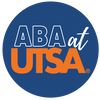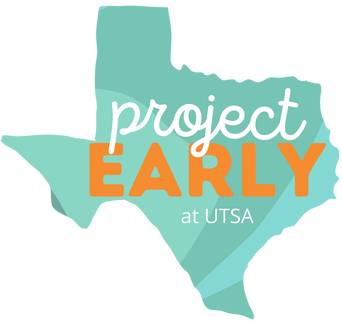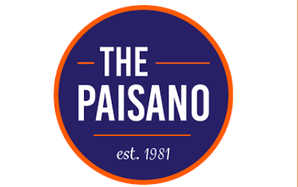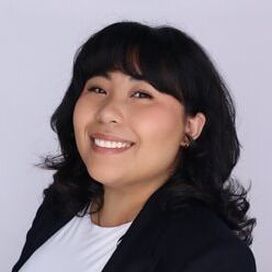|
Children with high-intensity needs, specifically children with autism spectrum disorder, may have several areas of need including speech and communication, behavior, academics, and nutrition. Service providers (e.g., BCBAs and School Psychologists) must understand the nature of young children’s abilities, experiences, languages, and cultures and how these influence children’s learning and development in general and these high-intensity needs in particular. Scholars will cross-train in ABA, school psychology, and early childhood subject matter with a goal to prepare scientist-practitioners who can identify early signs of ASD and provide culturally responsive and developmentally appropriate treatment. With combined training and expertise, the diverse group of scholars served by this grant will be able to identify autism symptomatology earlier, facilitate diagnosis, and start treatment earlier across settings.
|
All Scholars Receive$13,000 tuition stipend $500 technology stipend $500 summer stipend $250 for research materials $1,000 travel budget A paid internship Comprehensive supervision Interdisciplinary coursework Have a question? Submit your questions here! |
Frequently Asked Questions
What is this program
The goal of Project EARLY is to increase the quantity and quality of culturally-responsive early childhood specialists (i.e., BCBAs and school psychologists) trained to identify and provide interventions for infants and toddlers at-risk for or diagnosed with autism spectrum disorder. Scholars will cross-train in ABA, school psychology, and early childhood subject matter with a goal to prepare scientist-practitioners who can identify early signs of ASD and provide culturally responsive and developmentally appropriate ABA treatment. With combined training and expertise, the diverse group of scholars served by this grant will be able to identify autism symptomatology earlier, facilitate diagnosis, and start treatment earlier across settings.
What specific activities will I be doing as part of the program?
1. Shared coursework and Verified Course Sequence courses
2. Rotation through the Children's Hospital of San Antonio
3. Internship at the Autism Treatment Center
4. Placement at the PLAAY Early Intervention Research Lab
5. Consultation case with Early Head Start Child Care Partnership
6. Internships and consultation cases with Culturally and Linguistically Diverse population
7. EARLY Institute activities/ speakers
8. Training in implementing telehealth services
9. And more!!
2. Rotation through the Children's Hospital of San Antonio
3. Internship at the Autism Treatment Center
4. Placement at the PLAAY Early Intervention Research Lab
5. Consultation case with Early Head Start Child Care Partnership
6. Internships and consultation cases with Culturally and Linguistically Diverse population
7. EARLY Institute activities/ speakers
8. Training in implementing telehealth services
9. And more!!
who is on the project Team?
Dr. Leslie Neely, Principal Investigator
Dr. Hannah MacNaul, Co-PI for UTSA
Dr. Jeremy Sullivan, Co-PI for UTSA
Dr. Felicia Castro-Villarreal, Co-PI for UTSA
Dr. Iliana Alanís, Key personnel for UTSA
Dr. Victor Villarreal, Key personnel for UTSA
Dr. Guan Saw, Project Evaluator
Dr. Hannah MacNaul, Co-PI for UTSA
Dr. Jeremy Sullivan, Co-PI for UTSA
Dr. Felicia Castro-Villarreal, Co-PI for UTSA
Dr. Iliana Alanís, Key personnel for UTSA
Dr. Victor Villarreal, Key personnel for UTSA
Dr. Guan Saw, Project Evaluator
What degree will I receive? Will there be any other certifications?
Upon graduation, scholars will receive a Masters of Arts in School Psychology or Masters of Science in Behavior Analysis. Scholars will also be eligible to sit for the qualifying exam necessary to become a Board Certified Behavior Analyst (BCBA) and/or Licensed Specialist in School Psychology (LSSP) in the state of Texas.
Can I complete the degree online or part time? Can I work full time while participating in the program?
Project EARLY is designed to be a rigorous, immersive experience with the goal of training you to be a highly qualified researcher. Therefore, it requires a full-time commitment for 2-3 years, with physical residency in San Antonio. No online option is available.
What are the minimum requirements?
To be accepted in a graduate program at UTSA, candidates must meet the following requirements:
(1) earned baccalaureate degree from regionally accredited college or university
(2) a minimum cumulative grade point average of 3.0 in the last 60 semester credit hours of undergraduate coursework or accumulated graduate coursework
(3) initial content knowledge in the field including coursework in early childhood education, psychology, behavior analysis, or related field and/or employment in one of the targeted field
(4) strong verbal and written communication skills, as demonstrated by GRE verbal, quantitative, and writing scores (school psychology only).
Program requirements include:
(1) a current resume
(2) a strong statement of purpose describing their reasons for pursuing a graduate degree, area of concentration they are most interested in, and goals upon completion of the program
(3) two letters of recommendation including one academic or professional letter
(4) program interview
(1) earned baccalaureate degree from regionally accredited college or university
(2) a minimum cumulative grade point average of 3.0 in the last 60 semester credit hours of undergraduate coursework or accumulated graduate coursework
(3) initial content knowledge in the field including coursework in early childhood education, psychology, behavior analysis, or related field and/or employment in one of the targeted field
(4) strong verbal and written communication skills, as demonstrated by GRE verbal, quantitative, and writing scores (school psychology only).
Program requirements include:
(1) a current resume
(2) a strong statement of purpose describing their reasons for pursuing a graduate degree, area of concentration they are most interested in, and goals upon completion of the program
(3) two letters of recommendation including one academic or professional letter
(4) program interview
What is the funding package?
The funding package includes the following:
- $13,000 tuition stipend
- $500 technology stipend
- $500 summer stipend
- $250 for research materials
- $1,000 travel budget
- A paid internship
- Comprehensive supervision
- Interdisciplinary coursework
When should I apply?
Interested scholars should apply by February 1, 2025 for the Summer 2025 cohort. This opportunity is only available for citizens or residents of the United States.
Who is the funding source?
This program is funded by the Office of Special Education Programs (OSEP) through the U.S. Department of Education. OSEP is dedicated to improving results for infants, toddlers, children, and youth with disabilities ages birth through 21.
What other information should I know?
We strongly encourage candidates from underrepresented groups to apply, including individuals from race-, ethnic-, and cultural-minority groups, first-generation graduate students, and individuals with disabilities.
Project Manager
|
Cha Yong is currently a doctoral student in the School Psychology PhD program. She obtained her Master of Arts in Educational Psychology with a concentration in behavior assessment and intervention from the University of Texas at San Antonio. She is licensed and certified as a board-certified behavior analyst (BCBA) and her professional background encompasses delivering evidence-based clinical services to autistic children and adolescents. Her research pursuits center on utilizing ABA-based interventions to address intellectual and developmental disabilities in young children and school-age individuals. More specifically her interests extend to exploring cultural humility and mental health challenges within minority groups, roles/impact of culture in learning, and autistic masking.
|
The contents of this website were developed under grants from the U.S. Department of Education, #H325K21002. However, those contents do not necessarily represent the policy of the U.S. Department of Education, and you should not assume endorsement by the Federal Government. Program Officer, Tracie Dickson.
About
|
Research |
Students |
Caregivers |
ABA at UTSA |














